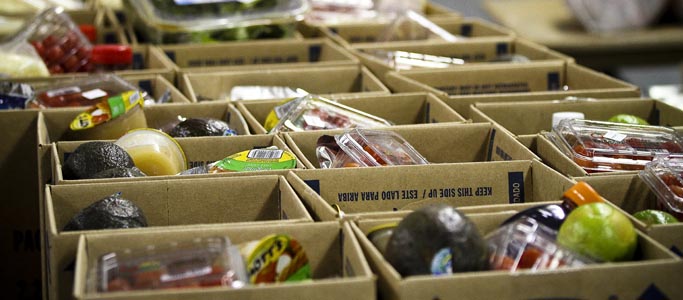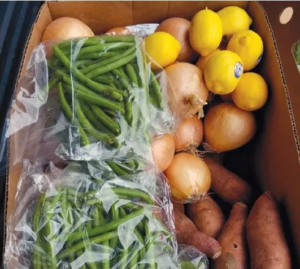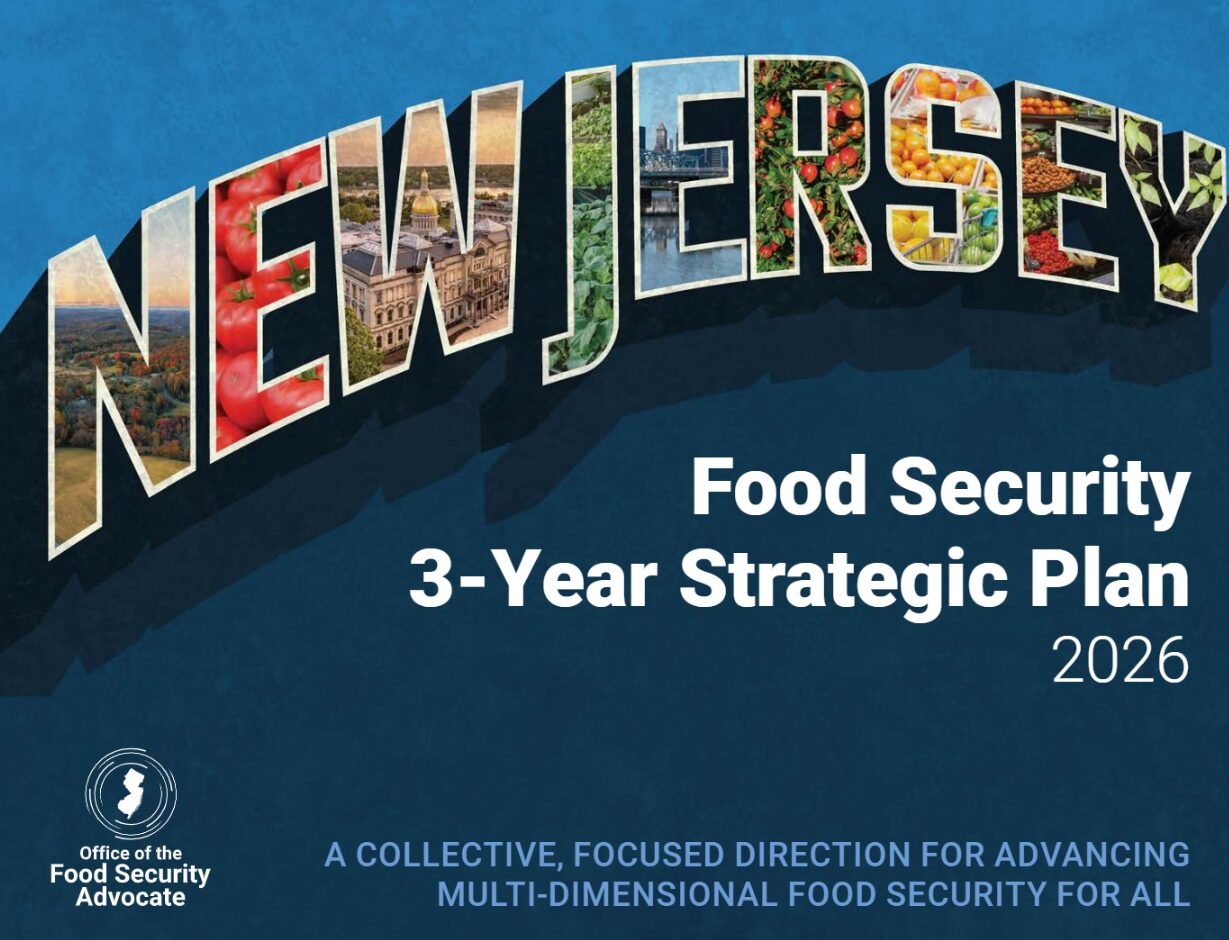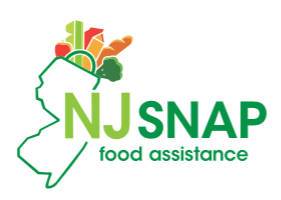
Blog
Good Samaritan Act, 1996: 20 Years of Protected Food Donation
In October 1996, Congress passed and President Clinton signed into law the Bill Emerson Good Samaritan Act, unifying protections available throughout the US, District of Columbia and Puerto Rico of business and individuals who want to donate excess food. Yet even after 20 years on the books, many are unaware of the law and we still waste 40% of our food, much of it perfect for donation.
Why, then, isn’t excess food donated?
Seems a no-brainer. You have excess food; you have neighbors without enough food. Why not donate that food to neighbors in need? Since those neighbors number a staggering 46+ million in the US and 1.1+ million just in New Jersey, this is a common-sense way to address the issue of local hunger. Yet many corporations, businesses, restaurants, individuals and organizations do not donate excess food from meetings, cafeterias, events, etc.
Two key reasons come to the forefront of every conversation about food donation: Liability and Logistics.
Fear of liability and an ensuing law suit dictates many of the decisions we make in the US. It can be argued that litigation is one of our strongest industries but it turns out, when it comes to food donation, there is a poor understanding of the risks. Since October 1, 2016, The Bill Emerson Good Samaritan Food Donation Act has protected donors in all 50 states from civil and criminal liability for good faith donations.
In 1990, all 50 states had statutes in place limiting the liability of food donors, but they were varied and left a difficult patchwork of laws that potential food donors needed teams of lawyers to navigate. Understandably, food donation became impossible for donors, large and small, to contend with. The Model Good Samaritan Act of 1990 was intended to give states a standard law to follow individually and independently, but with no force of law, only one state adopted the act. Missouri Representative Pat Danner recognized that the Model Good Samaritan Act would have limited use; she enlisted fellow Missouri Representative Bill Emerson to co-sponsor bill HR2428, the Good Samaritan Act. It would have the force of law it needed to successfully protect and encourage food donation. Representative Emerson was a profound proponent of issues involving hunger and had great clout with his colleagues. It was his long-standing support of hunger related issues along with his influence that were instrumental to the bill’s passage. Sadly, toward the end of the legislative process, Representative Emerson’s health failed and he passed away in June of 1996. At that time, Congress amended the bill so that it would be titled “The Bill Emerson Good Samaritan Food Donation Act” to honor his efforts at reducing hunger and improving the nation’s nutrition programs.
Specifically, the Bill Emerson Good Samaritan Food Donation Act (42 U.S.C. § 1791) encourages food donations by providing liability protections for businesses that donate ‘apparently wholesome’ food in ‘good faith’ to nonprofit organizations. 42 U.S.C. § 1758(l) explicitly states that schools participating in the national lunch program that donate excess food receive liability protection under the Bill Emerson Good Samaritan Food Donation Act, which:
- Protects you from liability when you donate to a non-profit organization;
- Protects you from civil and criminal liability should the product donated in good faith later cause harm to the recipient;
- Standardizes donor liability exposure, eliminating the need to investigate liability laws in 50 states; and
- Sets a floor of “gross negligence” or intentional misconduct for persons who donate grocery products. According to the new law, gross negligence is defined as “voluntary and conscious conduct by a person with knowledge (at the time of conduct) that the conduct is likely to be harmful to the health or well-being of another person.”
Additional laws in place to help encourage the donation of “wholesome food” are those that give tax credits to businesses and encourage federal agencies and contractors to donate to food rescue.
Internal Revenue Code 170 (e) (3) provides enhanced tax deductions to businesses to encourage donations of fit and wholesome food to qualified nonprofit organizations serving the poor and needy.
The US Federal Food Donation Act of 2008 was added to clarify and specify contract language to encourage federal agencies and their contractors to donate excess wholesome food to eligible nonprofit organizations to feed food-insecure people in the United States.
According to the Legal Guide to the Bill Emerson Good Samaritan Food Donation Act, by the University of Arkansas School of Law, “…a thorough search of filings and reported decisions did not turn up a single case that involved food donation-related liability or any attempts to get around the protections offered by the Bill Emerson Act. Additionally, several leading food recovery experts and anti-hunger advocates report that they are unaware of any such actual or threatened lawsuits.” So, the liability concerns are pretty well buttoned up.
Now back to the second reason given, logistics.
The logistics of large scale food donation like the type a restaurant or retailer may make are not as daunting as they may seem. Food rescue organizations, like Table to Table, make every effort to ensure that the donation process is as seamless and easy for the donor as possible. Taking the logistics, size and needs of each individual business into consideration, a plan is devised to take as little valuable time from each donor’s busy day as possible. Table to Table has 5 refrigerated trucks that start and finish each day empty, having picked up and delivered over 10,000 pounds of food per vehicle. Super simple and efficient!
If 15% of the food that is thrown away were rescued, it would feed 25 million people. Since one of the biggest obstacles to getting excess food to hungry people is a lack of information or awareness of the Good Samaritan Law, for its birthday, help get the word out. Inform your local grocery store, favorite restaurant, corporation, farmers markets, food wholesaler, and caterer that it’s worth the effort to live up to Representative Bill Emerson’s goals. We may not be able to end hunger, but we can certainly make sure that each of our neighbors has a wholesome meal each night. Don’t throw away your chance to help!
More From News
February 26, 2026
New Jersey Publishes 3-Year Food Security Strategic Plan
February 19, 2026
Olympic Food Policy Pact Aims to Rescue 100% of Surplus Food
REAL PEOPLE, REAL STORIES.
February 19, 2026
Table to Table Turns Surplus Into Sustenance For Families Like LaToya’s
When LaToya talks about her children, her face lights up with love and determination. Her son, Sterling, is 22 and living with...
February 10, 2026
Table to Table Rescues Heart-Healthy Foods
What foods are heart healthy? February is American Heart Month. It is a month dedicated to raising awareness about heart disease, the...
February 4, 2026
What Is The New SNAP Work Requirement?
A new work requirement went into effect Sunday for recipients to receive benefits from the New Jersey Supplemental Nutrition Assistance Program (SNAP)....













